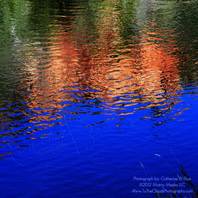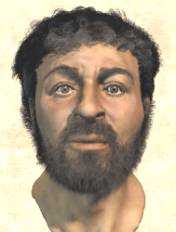This is the testimony given by John when the Jews sent priests and Levites from Jerusalem to ask him, ‘Who are you?’ He confessed and did not deny it, but confessed, ‘I am not the Messiah.’ And they asked him, ‘What then? Are you Elijah?’ He said, ‘I am not.’ ‘Are you the prophet?’ He answered, ‘No.’ Then they said to him, ‘Who are you? Let us have an answer for those who sent us. What do you say about yourself?’ He said,  John in John's gospel is not the locust eating, wilderness dweller spoken of by the other gospel writers. John is most simply - the witness. He is the voice, he says. He testifies to the light. Testify - as in a court of law. Testify - as one does of one's conversion experience. Testify - as a witness gives proof or evidence. In John's gospel there is no narration of Jesus' baptism. There is no cousin to cousin encounter teased out for us to see Jesus entering the water or to imagine John taking Jesus' hand to baptize him. No, in John's gospel there is only John's testimony to what happened. "I saw the Spirit descending from heaven like a dove and it remained on him." I grew up in a "testimony" culture. I was bred a Bapticostal, a mix of American Baptist and Assembly of God. The first time I learned about testimonies, I was taught there three simple steps: who I was before I met Jesus, what happenstance brought Jesus into my life, and what change has Jesus brought to my life. It's interesting to note that John's testimony has three components to as well: who John believes Jesus is, how John came to recognize who Jesus was, and a statement of witness to who Jesus is. There is for sure a little bit of John's discovery process in this testimony but the bulk of his testimony is about Jesus. Jesus is the Lamb of God who takes away the sins of the world. I would not have recognized it had I not been told about the dove that would come from heaven. And the dove did come from heaven - so again I say - this is the Son of God.  The second time I learned about giving testimonies, I was taught that a testimony shouldn't be more than week old. In other words, what I know or have experienced of God's movement in my life should be "fresh." God is always doing something and I should always be on the lookout for what God is doing - and then of course always ready to testify to what I have seen. Here is a forensic drawing of what Jesus' face may have looked like. Forensic science would say that the most recent memory would produce the best forensic drawing or the best testimony. Certainly laying claim to what happened to me when I was 14 that resulted in me recognizing who Jesus was is an old memory at this point. And the Jesus I knew when I was 14 is not the same Jesus I know today. For example, the Jesus I understood at 14 was primarily interested in taking away my sin, my individual sin. But the Jesus that John speaks of and the one I am more familiar with at this time in my life speaks of the Lamb of God who takes away the sin of the world. The cosmic, global separation that we may feel is not a reality. Jesus reveals God to us. Just as the writer indicated in the earlier verses, no one has ever seen God. But Jesus has revealed God to us. For me, the Greek poem at the beginning of the book transitions with this portion about John the Baptist and it sets the stage for us to consider how God is revealed. A testimony is all about revelation. And in our 21st century sensibilities, we often shy away from testifying to the light. After all, can we really say for sure that God has done something, is doing something? Don't statements like that set us apart as some holier than thou persona? Why would people believe that we know something about God that maybe they don't? This journey of revelation in the Book of John begins with one's personal testimony.
0 Comments
Leave a Reply. |
Search this blog for a specific text or story:
I am grateful for
|

This work is licensed under a Creative Commons Attribution-NonCommercial-ShareAlike 3.0 Unported License.
